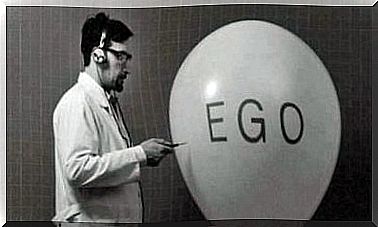Recognizing And Directing Envy

Envy is considered one of the seven deadly sins, and often envy goes hand in hand with criticism, a destructive form of criticism of the person being envied. It is destructive to both the envious person and the envied person. This emotion is not only very harmful, but also very common. Recognizing envy isn’t always easy, though, because it’s often hidden behind superficial comments.
It takes time and enough concentration to see envy for what it is, as it is not really a feeling that is socially accepted (except ‘healthy envy’, which can also be seen as a form of admiration). Therefore, envy operates quietly, tends to increase over time and can eventually cause us to enjoy the misfortune and suffering of others.
However, sometimes it makes itself known and is accompanied by a lot of resentment or judgment, although this is not always understood by the person being envied. This is because envy hides itself behind a veil of vitriolic comments and destructive criticism.
Envy comes from desire
Envy takes over when you want something you don’t have and become angry that other people do have what they want. Unfortunately, it is also a fairly common feeling that makes you a less good person. Moreover, people don’t just envy ‘unreachable’ people; you may also envy one of your closest friends or relatives.

We experience this unpleasant feeling because of two human tendencies: the tendency to want something we cannot get and the tendency to compare ourselves to everyone around us. Therefore, envy arises from desire and drags the envious person so far into the abyss that he can no longer empathize at all for those around him.
In addition, these negative feelings can cause the envious person to isolate themselves from others or experience difficulty getting along with others. In short, these types of people find it difficult to put themselves in someone else’s shoes, to be happy for others, and to build healthy relationships with them.
Recognizing envy: one of the most terrible feelings
When envy arises, it becomes mixed with other conflicting feelings: admiration, frustration, indignation, misery, etc. Typically, this feeling is nurtured toward relatives, friends, co-workers, and other people close.
Therefore, you could say that envy is one of the most toxic feelings you can experience. You can envy someone for his prestige, money, health, emotional success, career etc. And this all manifests itself in criticism, to make it easier to bear.

It is a repetitive form of criticism that makes no attempt at all to clarify things, but rather serves to give the envious person a sense of satisfaction, which often makes the envied person feel bad. Envy can be accompanied by libel, insults, or lies so that the envious person does not have to accept reality or subdue their feelings.
Take a good look at yourself before you say anything about someone else
The harmful judgments that come from envy are the product of apathy and great dissatisfaction with one’s own life. Envy is a reflection of desire, nonconformism and self-rejection. It is a feeling that refers to a dissatisfaction, but does not dare to admit it.
It’s not a matter of always aligning yourself or striving for personal progress. One of the best ways to control envy is to use it as a source of motivation. That is, make the success of others become the spark that ignites and encourages you to take action.
Taking a good look at yourself before you say something envious about someone else will help you see what you need to change or what desires you have that have not yet been fulfilled. After that, it will be much easier to direct your actions toward achieving your goals and fight for those goals with hope, not hatred.
Improve yourself instead of criticizing others









